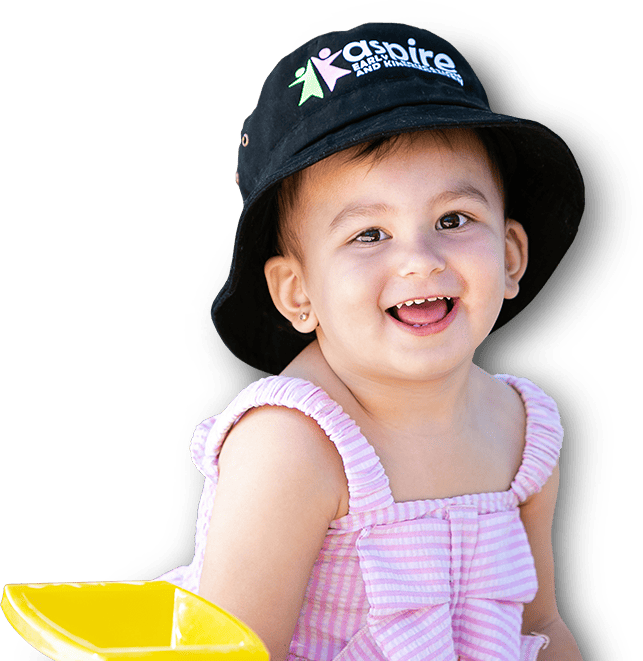About Aspire Early Education
At Aspire Early Education and Kindergarten, we understand that your goal as a parent is to enhance your child’s full potential by providing them with the best possible start in life. We believe children respond, learn, and grow better in positive community environments. Whether this relates to our families, children, educators, or the local community, all these parts are important to work together to provide a safe place of learning where children are nurtured to reach their full potential.
We currently have 14 centres across Melbourne and are continuing to expand over the coming years. Learn more about our specific programs and centres, as well as our philosophy and career opportunities below.
Education Programs
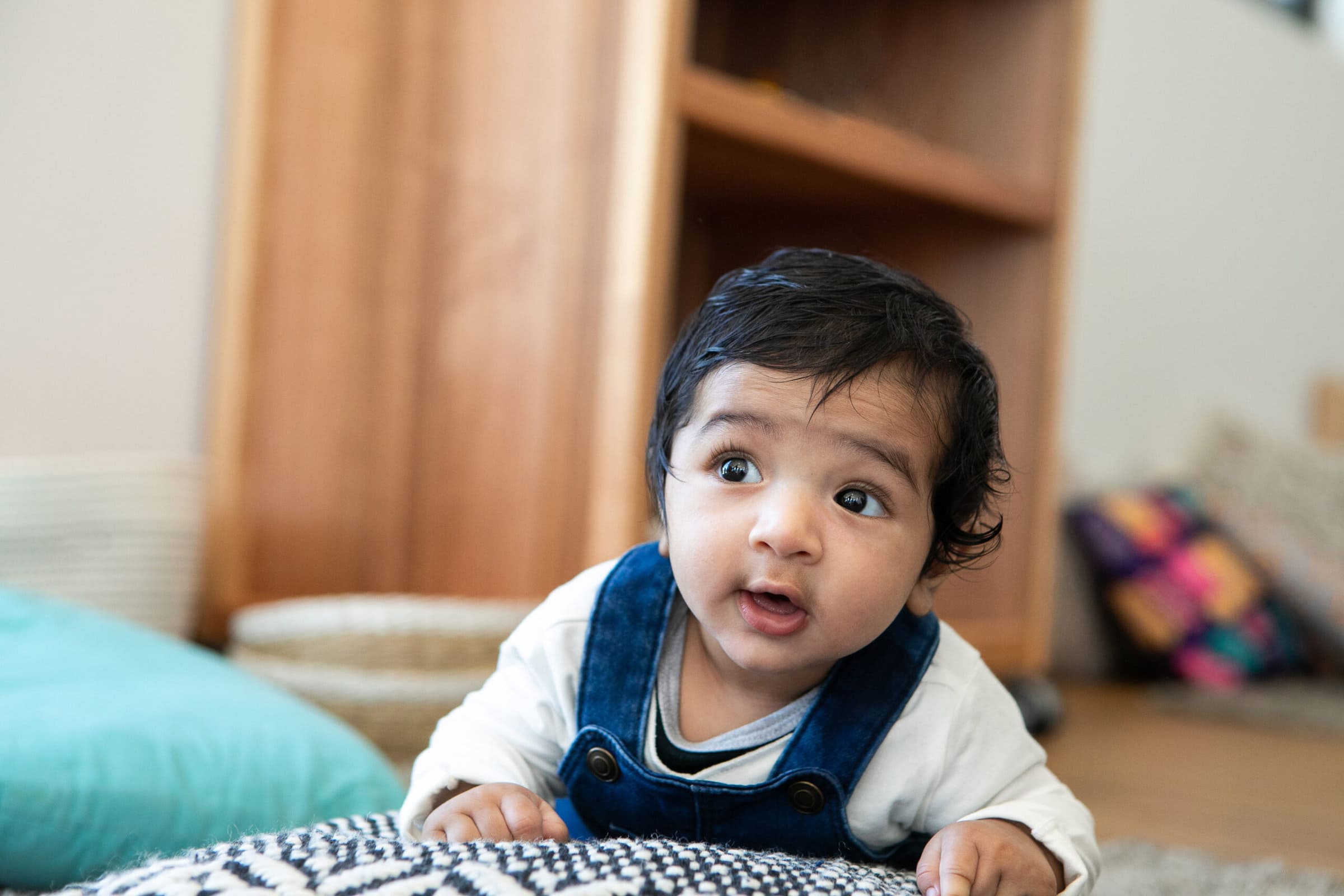
Nursery
Our Baby Steps Nursery program provides a nurturing environment for children aged 6 weeks to 2 years, with activities and intentional teaching opportunities that support them to reach developmental milestones.
Learn More
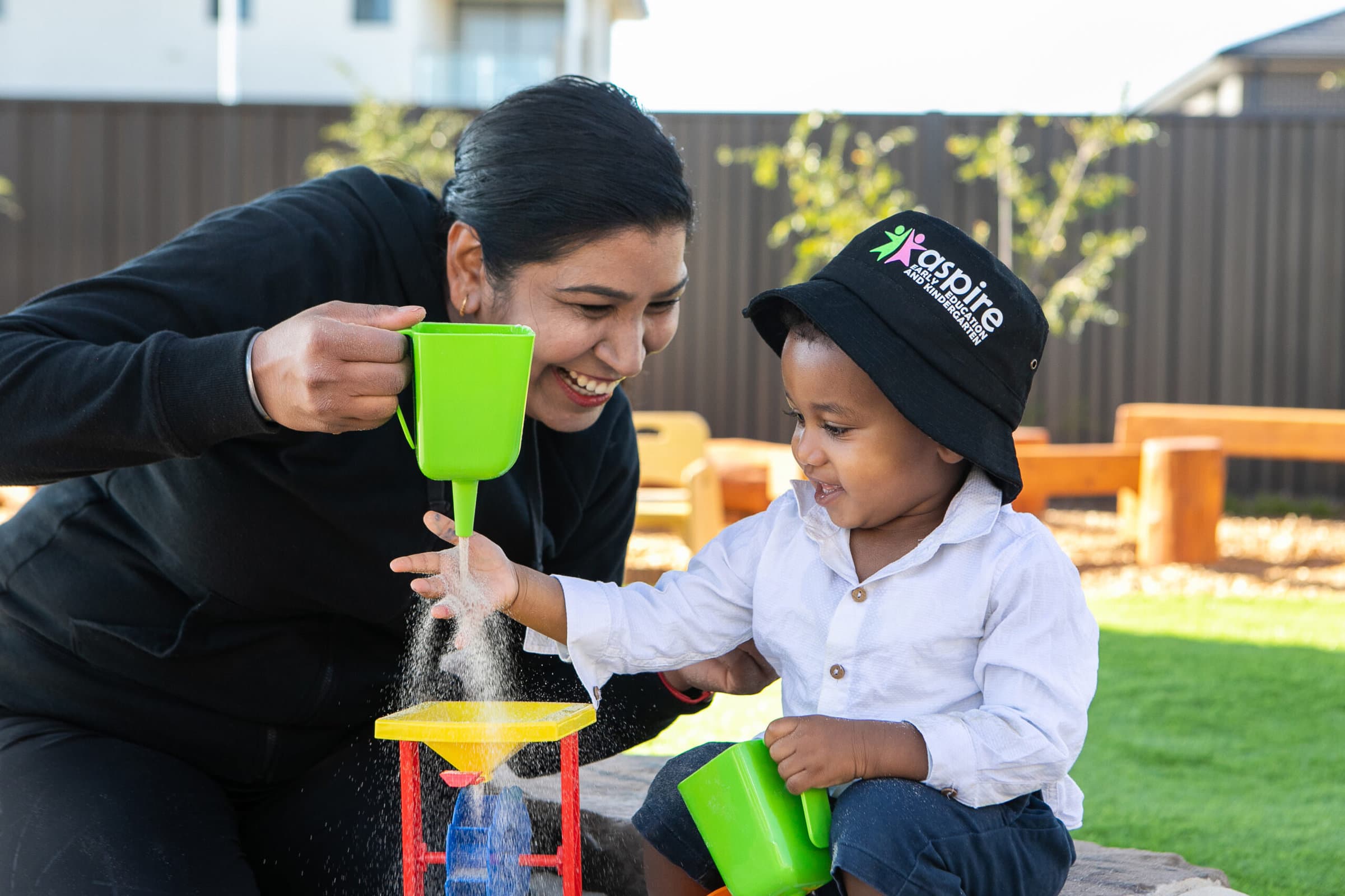
Toddler
Our Little Learners Toddler Program, for children aged 2 to 3 years old, is designed to create an engaging environment that supports your toddler’s social and cognitive development.
Learn More
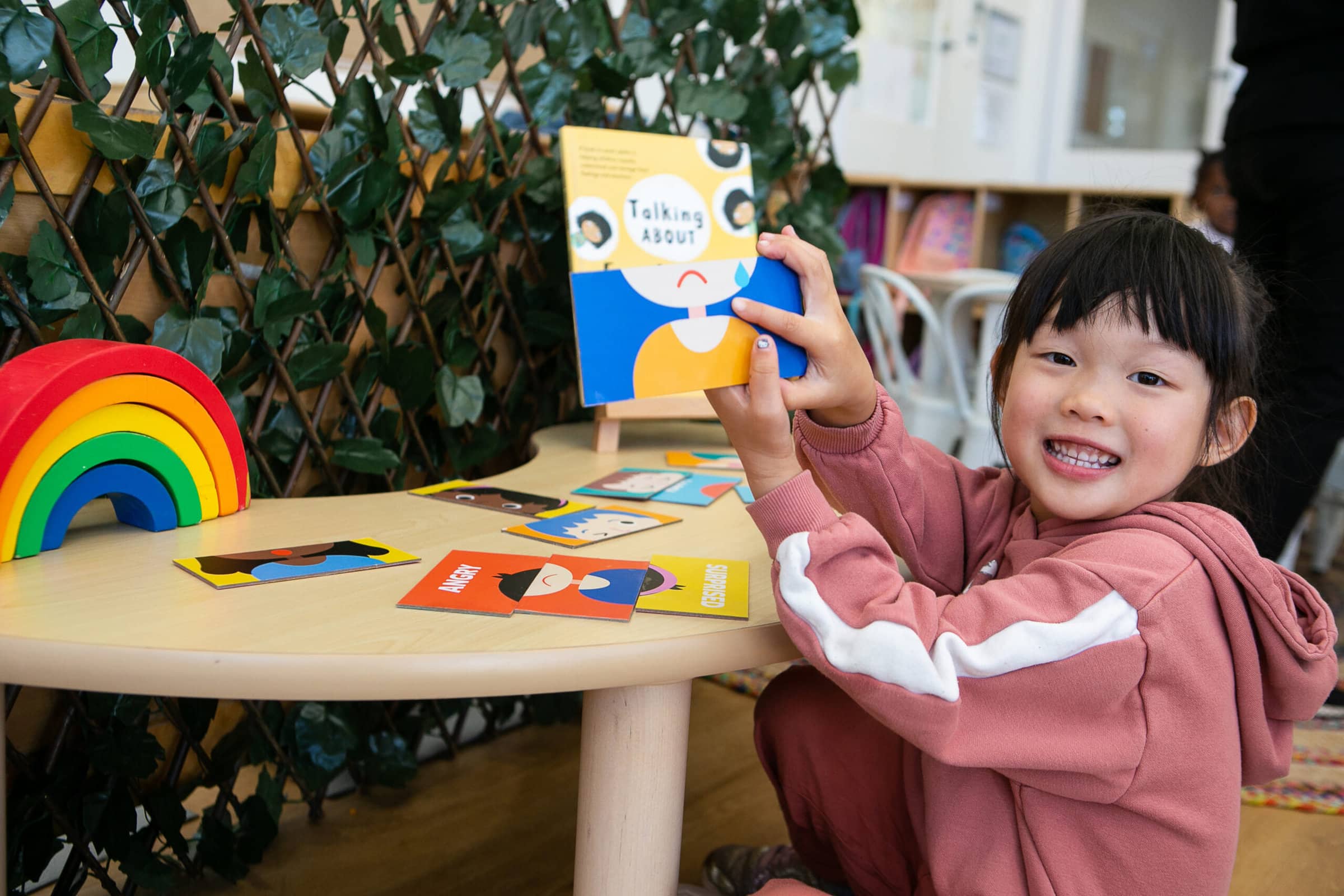
Kindergarten
Our Kickstart to Kinder program offers fully funded kinder for 3- and 4-year-old children, that provides opportunities to learn in a safe and supportive environment and prepares children for their transition to school.
Learn More
Partner Programs
At Aspire, we connect with a range of community partners that offer exciting programs across our centres for all our age groups. These programs promote and inspire a love of learning for everyone and supports children's social interactions. Learn more about some of our partner programs here.
Our Philosophy
We strive to provide high quality education and care for all children and families in our communities, delivered by professional and passionate educators. Our three-pillar philosophy is based around three key values – Aspire to Connect, Aspire to Learn and Aspire to Grow.
Aspire to Connect
Aspire to Learn
Aspire to Grow
Careers at Aspire
If you're looking for a career in early education, we are always on the lookout for passionate educators and head office staff to join our Aspire team. To learn more about our job opportunities and the benefits of working with us, visit our careers page.
Careers at Aspire
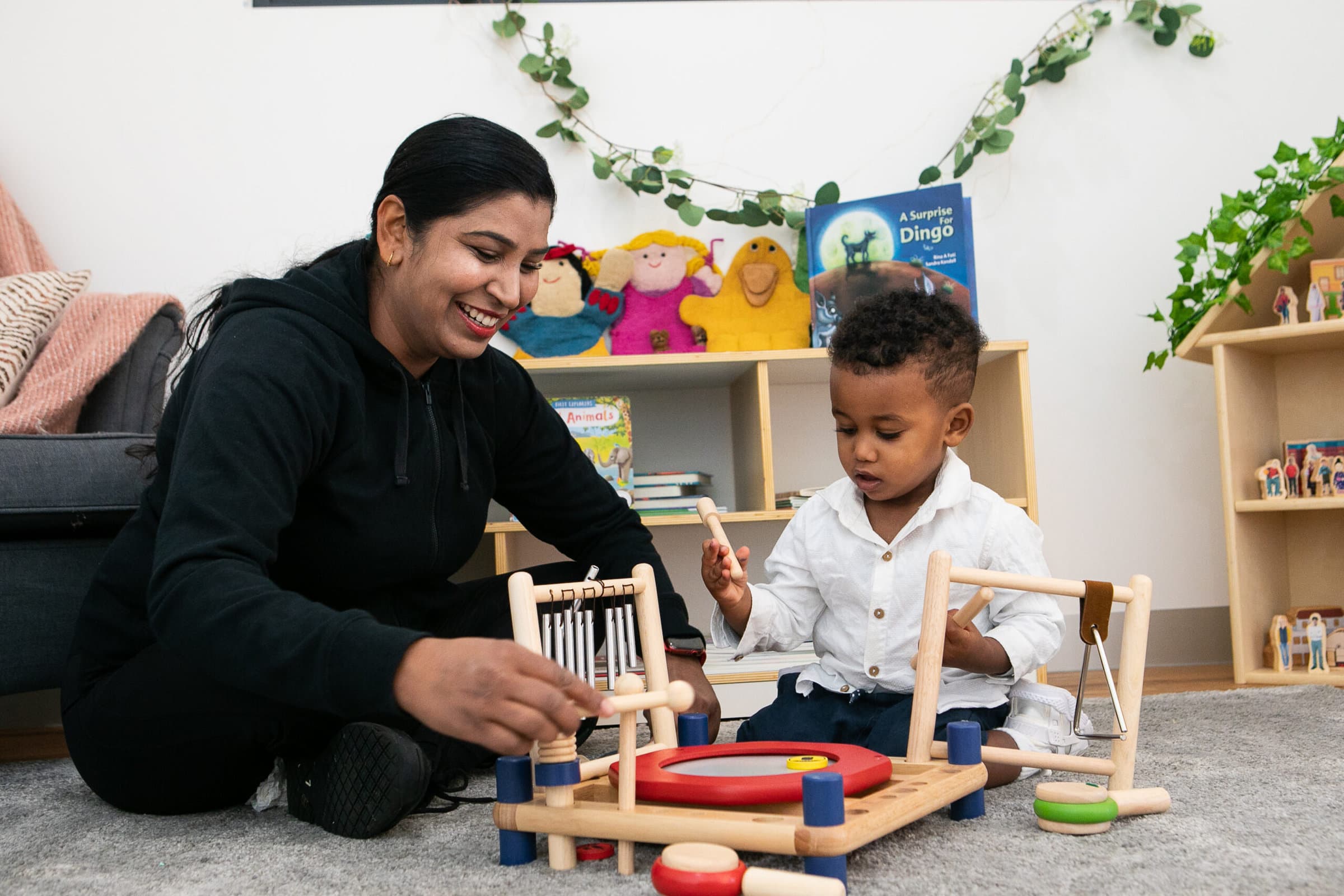
Explore Our Centres
We currently have 14 centres open across Melbourne and are excited about our continued growth over the coming years. Learn more about our current centres and those opening soon.
View Our Locations
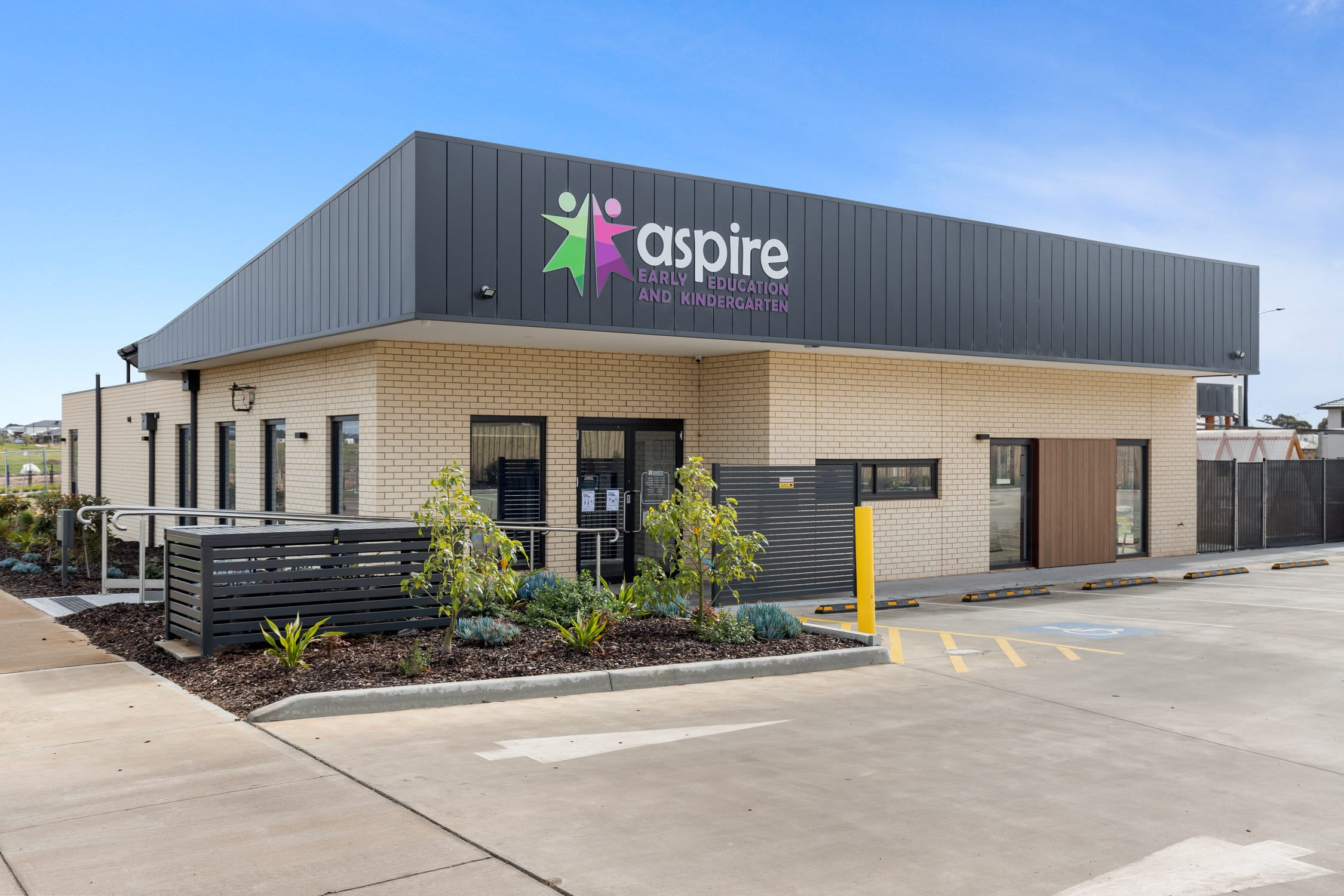
Early childhood education relates the education, learning and development of children which takes place predominantly from birth to five years of age. During this time, children will learn vital skills and set foundations that will prepare them for schooling and later life. Early childhood education focuses on the essential developmental milestones, skills, and concepts that children achieve during this period which include physical growth, social, emotional, and cognitive development. We believe in providing children with quality early education in which they will develop lifelong skills.
According to the Victorian Government, a child who has attended two years of a quality kindergarten program will, on average:
- Have better cognitive and social skills when they start school (including better development in language, pre-reading, early number concepts, non-verbal reasoning, independence, concentration, and social skills)
- Have higher exam scores at 16, including better grades in english and maths
- Have more developed social and emotional outcomes at age 16
- Be more likely to take more final year exams and to go on to higher academic study
Play is vital to children’s learning, development, confidence, and wellbeing. A variety of structured and unstructured play activities builds on all areas of children’s development.
Active play such as jumping, running, and climbing supports children’s overall health, physical growth, and supports awareness of the benefits of an active lifestyle.
Imaginative play, which includes dressing up and role play, can help children develop positive social and emotional skills and values. Imaginative play provides children opportunities to learn how to play and work with other children, discuss ideas, and make decisions.
Individual and collaborative play helps children to develop cognitive skills through learning how to problem solve, think creatively, and concentrate. Play also supports literacy and numeracy development, by learning new concepts such as counting, measuring, vocabulary and identifying letters and words.
We offer 3-year-old and 4-year-old Kindergarten programs. Children may attend the services provided they will be three or four years of age for the relevant service, as of 30 April in the year of their attendance.
At Aspire Early Education and Kindergarten, we focus on your child’s journey from the nursery to kindergarten. It is recommended that you secure your child’s place in kindergarten as soon as possible, or when your child first starts care at the centre.
Depending on vacancies, we may be able to take external bookings for our Kindergarten program.
Children’s brains will develop faster in their first five years of life than at any other stage in their life. Therefore, it is important to provide your child with a nurturing and stimulating environment with a variety of ways for them to grow and learn.
During the toddler stage, children will learn mainly through relationships and through play. Play is crucial to your baby’s cognitive development as they develop the ability to think, understand and communicate. Your child explores through play by experimenting, creating, and thinking. Playing with your toddler builds the relationship with your child, by supporting them and providing them with a safe space to explore and learn.
Although we offer both childcare and kindergarten in our centres, the two are different. We offer childcare for children aged from 6 months old for families who require care for their children. While we offer educational programs to younger children, our 3-year-old and 4-year-old Kindergarten programs offer a structured approach to the children’s education. Our programs follow the National Quality Standards, and our Kindergarten educational program is designed by a fully qualified early childhood teacher. Our teachers comply with comprehensive knowledge of the Early Years Learning Framework and Victorian Early Years Learning and Development Framework.
Government funding significantly reduces kindergarten fees for families. For some families, it means that their children can attend kindergarten programs for no or low cost.
The Victorian Government covers around two-thirds of the cost of an average funded 3-year-old and 4-year-old Kindergarten program. This funding is provided directly to the kindergarten service. This allows children to access up to 15 hours a week of funded kindergarten delivered by a qualified early childhood teacher.
The amount families can expect to pay will vary depending on the type of early childhood education service their child attends. Eligible families can receive a rebate on per day fees via the Commonwealth Government’s Child Care Subsidy.
Families can access a funded kindergarten programs at low or no cost if the child:
- Is Aboriginal and/or Torres Strait Islander
- Is a triplet or quadruplet
- Is covered by a Health Care Card
- Holds an eligible concession card or refugee, humanitarian or asylum seeker visa, or their parent or guardian does.
Speak to us about your family’s eligibility when you enrol your child.
The Child Care Subsidy (CCS) is a payment from the Government that will provide financial assistance towards the cost of your child’s care and reduces the cost of your total childcare fees. There are certain requirements you need to meet to be eligible for CCS. Until your CCS has been approved and has commenced, full fee payment is required.
Family entitlement to CCS, will be determined by a three-step activity test, more closely aligning the hours of subsidised care with the combined hours of work, training, study, or other recognised activity undertaken, and providing for up to 100 hours of subsidy per fortnight.
A broad range of activities will meet the activity test requirements including paid work; being self-employed; doing unpaid work in a family business; looking for work; volunteering or studying. There will be exemptions to the activity test for parents who legitimately cannot meet the activity requirements.
Our centres provide children with nutritious meals, linen, nappies, and sunscreen. We ask families to supply a water bottle, hat, spare change of clothes, and, if required, a comfort item (toy or blanket), and formula. Please pack all items in a bag for the child ensuring that the child’s name is clearly labelled on each item and the bag.
Families are expected to notify the service if the child/ren are to be absent for the day. The service has a legal obligation to the Commonwealth Department of Education, Employment and Workplace Relations to record all absences of children who are in receipt of CCB within the Service. If your child has been absent, and you receive CCS, you have a legal requirement to notify the Service of the reason for your child’s absence.
Allowable Absence Days - CCS is paid for up to 42 allowable absence days for each child per financial year, the initial 42 absence days must be exhausted before additional absences can be claimed.
Approved Absence Days - CCS is payable for absences taken for the following reasons:
- Illness (medical certificate required)
- Non-immunisation
- Rostered days off
- Rotating shift work
- Court ordered shared custody
- Attendance at pre-school
- Temporary closure of a school or pupil-free days
- Exceptional circumstances
All absent days from the service whether they are due to illness, holidays, rostered days off etc. must be paid for in full. All booked days must be paid in full regardless of attendance.
All public holidays are to be paid in full, as are sick days and holidays. However, each family receives two weeks at half fee, per financial year.
Our services are open Monday to Friday 6.30 am – 6.30 pm for 52 weeks of the year. Centres and Head Office are closed on Victorian public holidays.
To become an early childhood educator, you are required to study at TAFE or at a Registered Training Organisation (RTO).
There are two courses an individual can study to become an early childhood educator:
- Certificate III in Early Childhood Education and Care or
- Diploma of Early Childhood Education and Care.
There are opportunities to upskill through a university degree to become a teacher.
